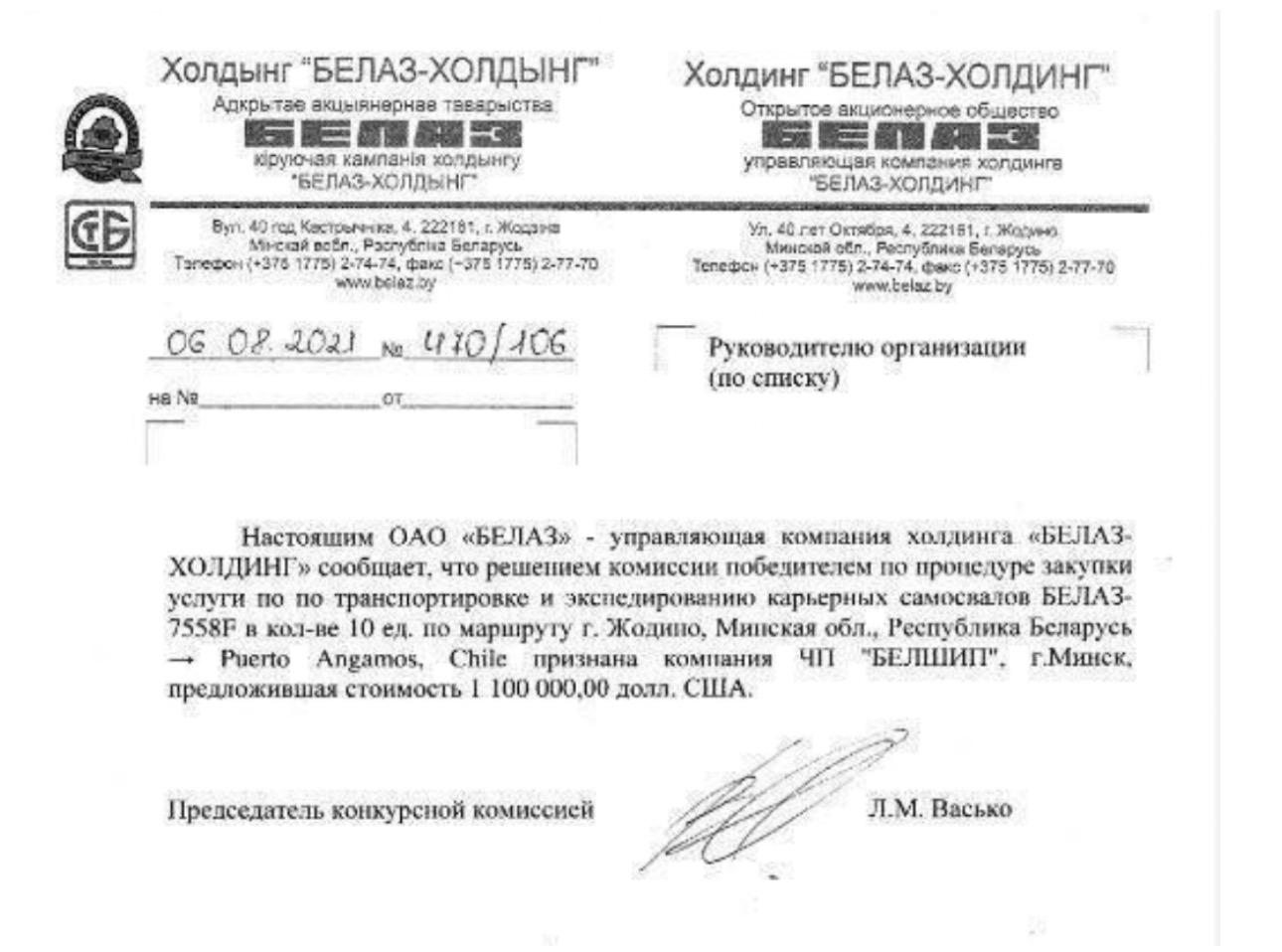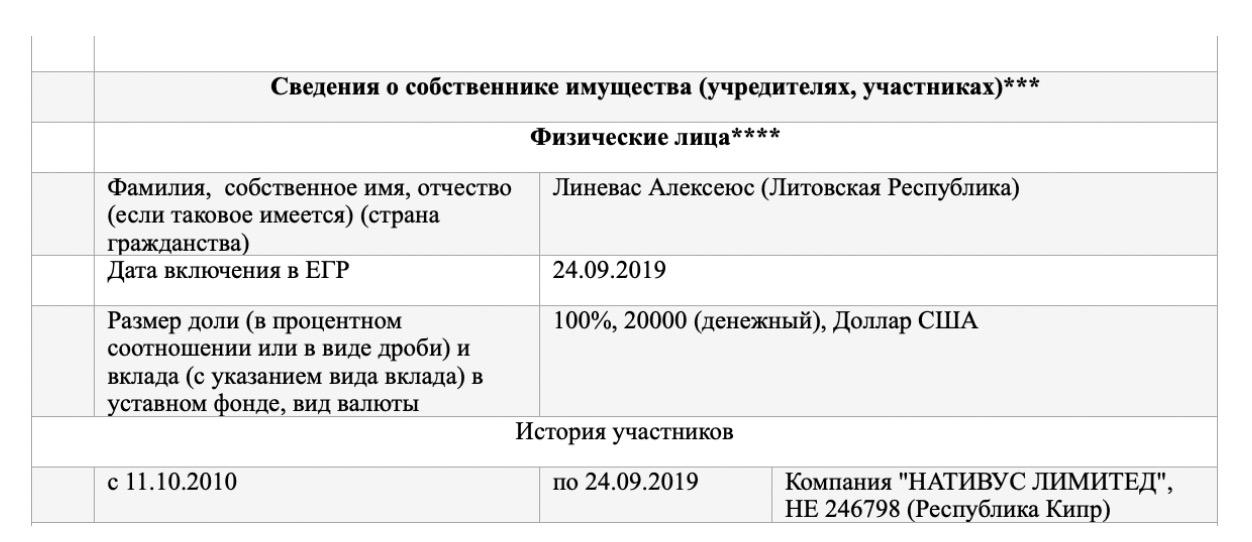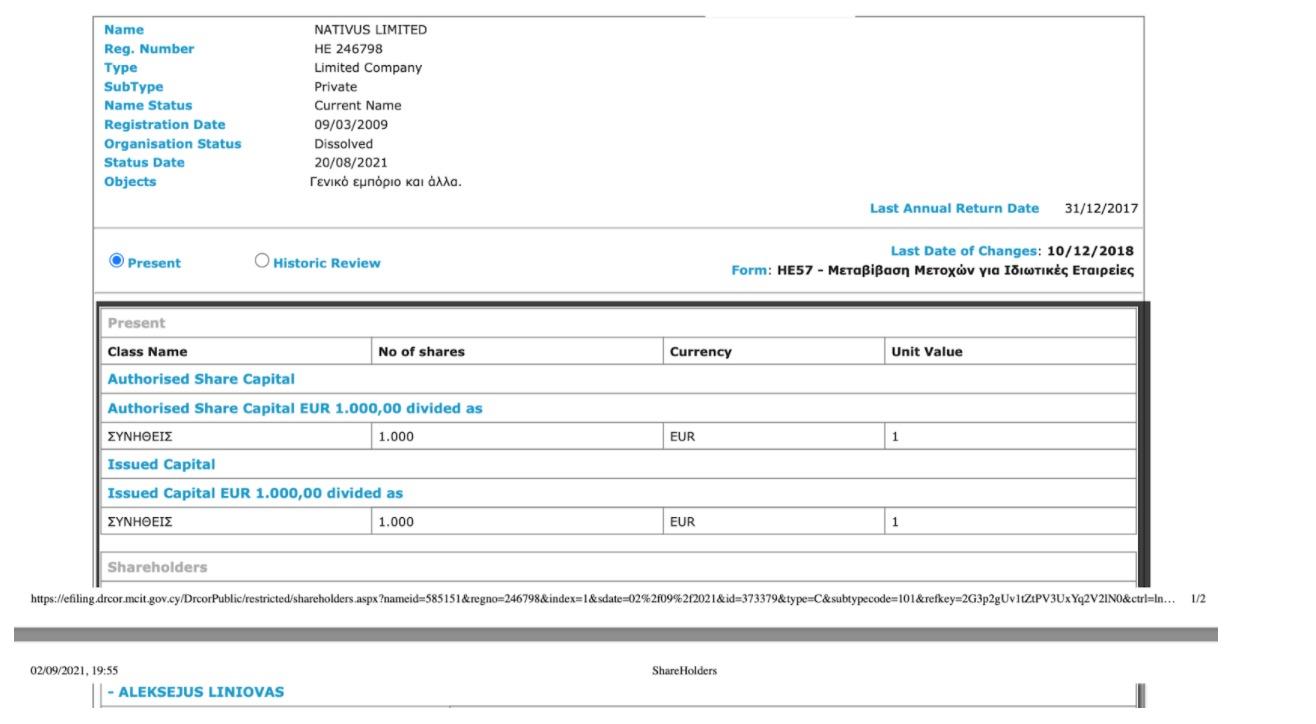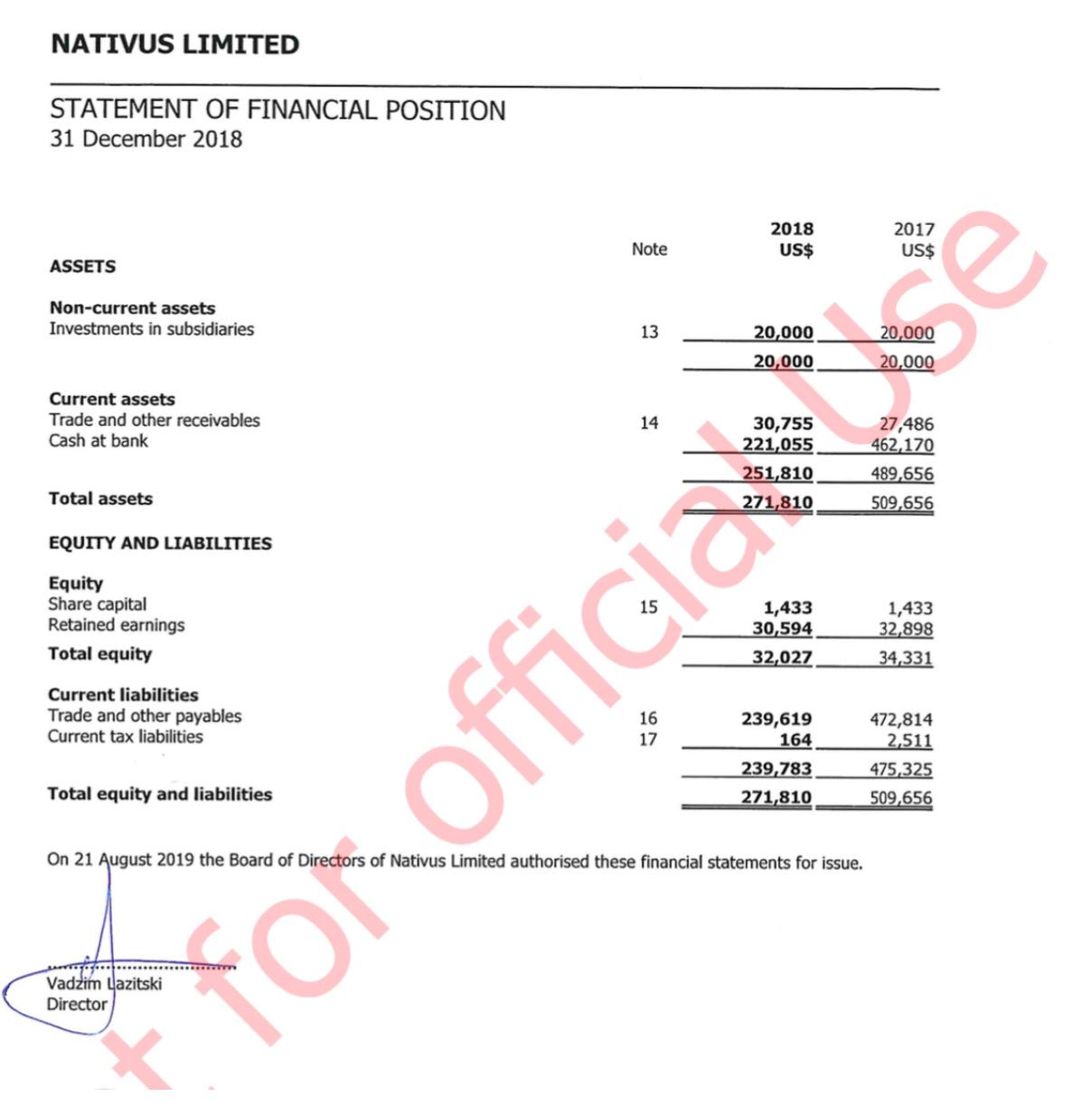In May Belarusian automobile factory BelAZ signed a contract with Chili to sell 18 dump trucks. This is the biggest contract for the Zhodino plant with Latin America.
However, Europe imposed sanctions on BelAZ on June 21 and that ground the supplies of trucks through Lithuania to a halt. The journalists of the “Davaite razbiratsia” program figured out the ways of circumventing the sanctions.
In early September transit of “BelAZ” dump trucks was blocked by the Lithuania customs office. The dissembled machines were put into 18 shipping containers.
According to the papers, the vendor of the equipment is the Zhodino plant and its recipient is a dealer in Chili called Belaz Latin America, whereas the customer is a subsidiary of BelAZ called Finmining. The latter is in charge of insuring import risks as one dump truck costs $1 266 500.
Eventually, Lithuanian customs office cancelled its restrictions for the Belarus factory as 80% of machines’ cost was paid prior to sanctions imposition and BelAZ managed to ship its goods through Klaipeda. But our journalists found out some odds in the deal.
The equipment was shipped to Klaipeda seaport by railways. Its shipping was carried out by a Belarusian company “Transglobal”, which previously conducted shipping services for other Belarusian giants such as “Naftan”, “Belsolod”, “Belaruskali” and “Gomselmash” and shipped BelAZ trucks to Uzbekistan in 2019-2020 through Russia. Since the day “Transglobal” was founded, it has belonged to a Russian businessman Grant Oganiants. In 2017 his other company called “Diesel komplekt” supplied Kyrgyzstan with BelAZ trucks. Although at that time the machines were registered in a customs-free zone with no customs duties and taxes, not all underwent all the required procedures. Thus a criminal proceeding was instituted. The cargo was seized and “Diesel komplekt” company was suspended.
As a result, the businessmen reached out to Ikramzhan Ilmiyanov, who was the President’s Advisor at that time. Ilmiyanov agreed to deal with the proceeding and asked $150 000 for his assistance.

In October 2019 ex-advisor was sentenced to 7 years in prison. The Court considered that Ikramzhan Ilmiyanov defrauded the money as he had no authority to terminate the criminal case. Later his sentence was reduced by 1,5 year, and proceedings in the “Diesel komplekt” case were ceased.
However, “Transglobal” wasn’t the only company to ship Belarus dump trucks to Chili. In early August the company “Belship” became the successful bidder and billed 1,1 mln dollars for its services.

It is important to note that the tender took place on June 24 after the sanctions were imposed.
The “Belship” company director Vadim Makarov did not deny the fact that the trucks were going to be shipped through Klaipeda but referred to the NDA and refused to tell how he was going to implement it. A representative from “BelAZ” suggested various ways of transportation.
In September 2019 a Lithuanian citizen Aleksius Linevas became the “Belship” owner. He used to work as a Deputy Director of Vilnius Prison and retired in July 2018 right after an incident. The Trade Union numerously reported about Aleksius’s unethical behavior towards his employees.

Nobody knows what Linevas does for living apart from shipment services. The only fact is that since 2018 he has owned “Belship” and “Nativus Limited”, which was previously owned by offshores in Marshall and Seychellees Islands.

“Nativus Limited” assets at the end of 2018 accounted for $270 000.

Where does an ex-deputy of a prison get his money from? Not long before he left his job, he declared 100 000 euro. Linevas refused to comment on this fact.
According to the laws of Lithuania, an executive may be regarded as a sanction violator as he profits from collaboration with BelAZ. Thus, one’s minimal penalty is a fine, whereas the maximum is 5 years’ deprivation of liberty. When the investigation upon the violation of sanctions was published, congressman Mindaugas Linge filed a report to the Attorney General Office requesting to investigate possible violations.


